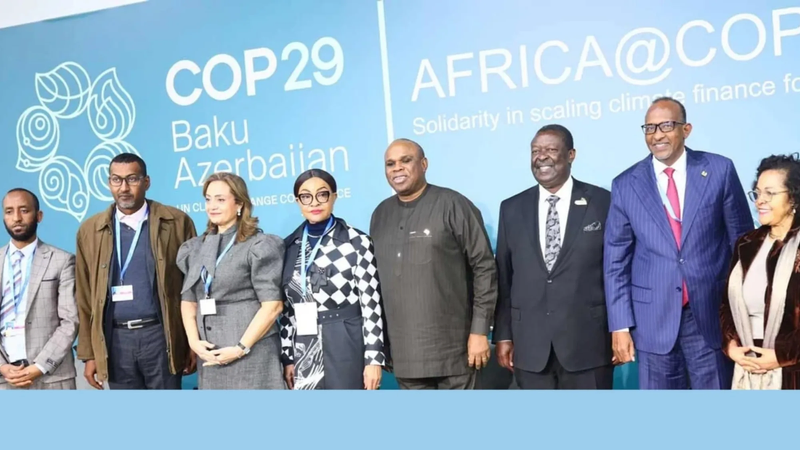As COP29 concludes in Baku, Azerbaijan, African leaders and policymakers have put forward bold initiatives to tackle the continent’s pressing climate challenges, calling for global solutions that ensure fairness and equity. Recognizing that Africa is at the forefront of climate impacts, the leaders urged for immediate financial commitments and proper valuation of the continent’s green assets.
A significant announcement came from the Climate Investment Funds Capital Markets Mechanism (CCMM), which introduced a bond listing on the London Stock Exchange aimed at boosting climate finance for Africa. African Development Bank President Akinwumi Adesina hailed the initiative as a “first of its kind,” emphasizing the need for innovative models to secure larger climate funding for developing countries.
The African Union also pushed for the activation of the “loss and damage fund” established at COP28, with Afreximbank President Benedict Oramah stressing that the financing gap—currently estimated at $1.3 trillion annually—poses a major obstacle to climate resilience and adaptation.
A key issue raised was Africa’s ongoing clean cooking crisis, with over 83% of people in Sub-Saharan Africa relying on biomass fuels, which lead to 4 million premature deaths each year and incur over $790 billion in health and environmental damages. Tanzania’s Vice President Philip Mpango lamented the preventable deaths caused by the lack of access to clean cooking solutions, while African Development Bank Vice President Kevin Kariuki called for $4 billion annually to achieve universal clean cooking access by 2030.
Adesina also spoke out about the “carbon grab” taking place, criticizing the inadequate valuation of Africa’s natural resources. A report, Measuring the Green Wealth of Nations, urged that Africa’s natural wealth be accurately priced to unlock green financing. “It’s time for Africa to turn its vast green assets into real wealth,” Adesina said, advocating for these assets to be integrated into a “green GDP” framework.
The theme of Africa Day at COP29, “Scaling up Financing for Climate Adaptation and Green Growth in Africa,” emphasized the importance of private sector investment to complement public efforts. UNECA executive secretary Claver Gatete stressed the urgency of establishing a New Collective Quantified Goal (NCQG) to finance Africa’s real climate needs.
ALSO READ ; Israel and Hezbollah Agree to Ceasefire After US Mediation

For comments, Feedback and Opinions do get in touch with our editor on WhatsApp: +44 7949 297606.
